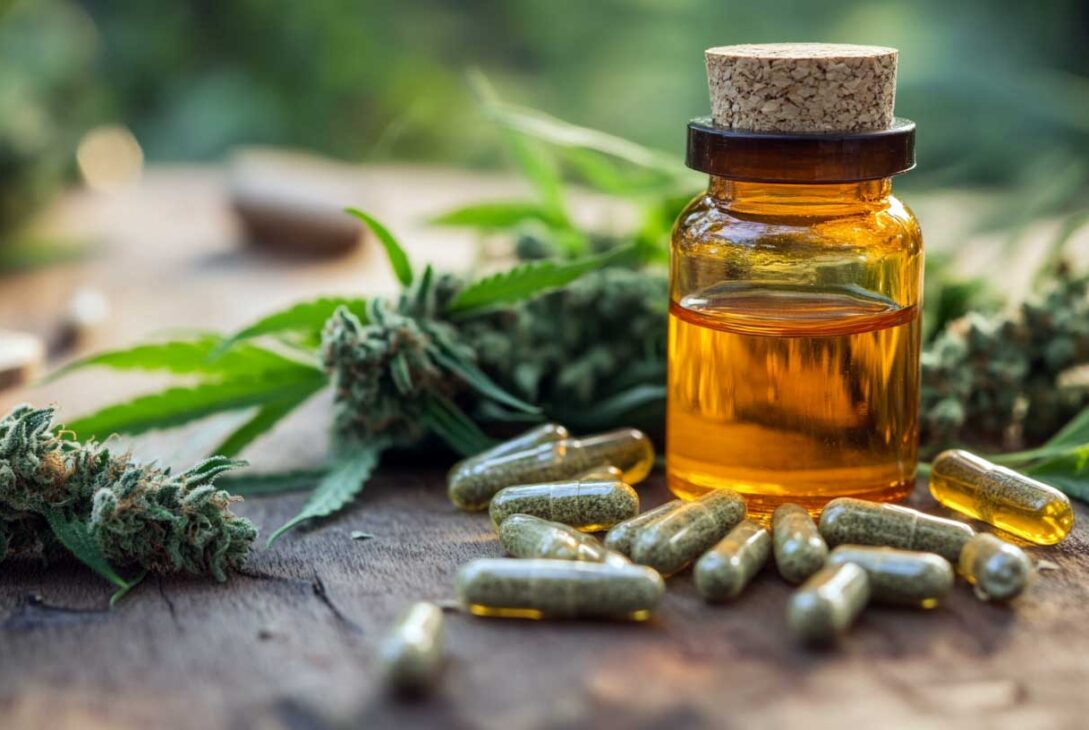The Connection Between CBD and Gut Health: A Comprehensive Guide
Introduction
In recent years, the significance of gut health has gained increasing attention. Research has revealed that our gut microbiome—an intricate community of microorganisms living in our digestive tract—plays a pivotal role in our overall well-being. Among the growing number of natural solutions for digestive support, cannabidiol (CBD), a compound derived from hemp, is receiving considerable interest. Emerging studies suggest that CBD could serve as a valuable ally in fostering digestive health. This guide aims to explore the science behind CBD, its potential benefits for gut health, and how it can fit into a holistic approach to digestion and microbiome balance.
What is CBD and How Does it Interact with the Body?
CBD, or cannabidiol, is one of over a hundred cannabinoids found in the cannabis plant. What sets CBD apart is that it does not produce the psychoactive effects associated with THC (tetrahydrocannabinol), making it attractive for those looking for therapeutic benefits without the high.
CBD interacts with the body primarily through the endocannabinoid system (ECS), a complex network of receptors and neurotransmitters that regulate various bodily functions, including digestion, inflammation, and immune response. This interaction allows CBD to potentially provide relief from several health issues, including those connected to gut health.
How CBD May Improve Gut Health
Reducing Intestinal Inflammation
Chronic inflammation is a common issue in the gut and can lead to serious digestive disorders, such as inflammatory bowel diseases (IBD) like ulcerative colitis and Crohn’s disease. Research indicates that CBD may help reduce intestinal inflammation. For instance, studies in mice have shown that CBD can significantly decrease colon inflammation, suggesting it may have similar effects in humans. A combination of CBD and THC has also demonstrated potential in alleviating inflammation in experimental models of colitis.
The gut microbiome is a diverse ecosystem of bacteria that plays essential roles in digestion, nutrient absorption, and immune function. A balanced microbiome is crucial for maintaining good health. Early studies hint that CBD might aid in promoting the growth of beneficial bacteria while inhibiting harmful pathogens. Preclinical research suggests CBD can influence the composition and diversity of gut microbiota, ultimately enhancing gut barrier function and the immune response.
The connection between the brain and the gut—often referred to as the “gut-brain axis”—is well established. Stress and anxiety can exacerbate many digestive issues. CBD has shown promise in managing stress and anxiety, which may have positive implications for gut health. By fostering relaxation and reducing psychological stress, CBD could help mitigate symptoms associated with stress-related disorders, such as irritable bowel syndrome (IBS) and functional dyspepsia.
Additional Ways to Support Gut Health
While CBD shows remarkable potential, it’s essential to adopt a comprehensive approach to maintaining good gut health. Here are some additional ways to enhance your digestive well-being:
A balanced diet plays a critical role in nurturing your gut’s microbiome. Focus on incorporating:
- Fruits and vegetables: These are high in fiber and antioxidants that support the growth of beneficial bacteria.
- Fermented foods: Items like kefir, kimchi, and sauerkraut contain probiotics that enhance the gut microbiome.
- Whole grains: Foods such as oats and quinoa provide important nutrients and promote a healthy digestive system.
Exercise Regularly
Regular physical activity is essential for maintaining a healthy microbiome. Studies suggest that being active increases microbiome diversity and can enhance the production of short-chain fatty acids like butyrate. This fatty acid is particularly beneficial because it fuels the cells lining the colon and promotes anti-inflammatory effects. Aim for about 150 minutes of moderate aerobic activity each week, complemented by strength training exercises.
Sleep impacts gut health more than you might think. Research shows that proper sleep can regulate the cycling of gut bacteria and protein functions. Strive for 7 to 8 hours of restful sleep each night, and maintain a consistent sleep schedule to support optimal gut function.
Conclusion
The connection between CBD and gut health is an exciting area of study that hints at considerable benefits for digestive wellness. By targeting inflammation, supporting the microbiome, and managing stress, CBD could play a significant role in your journey toward a healthier gut.
Actionable Tips
- Incorporate CBD: If you experience chronic digestive issues, consider integrating CBD oil or hemp-derived products into your daily routine, always starting with a low dose and consulting a healthcare provider first.
- Eat Whole Foods: Focus on a diverse and balanced diet rich in fruits, vegetables, and fermented foods. This lays the groundwork for a flourishing gut microbiome.
- Exercise Regularly: Aim to include at least three hours of exercise per week, encompassing both aerobic and strength training activities, promoting a healthy and diverse microbiome.
- Get Enough Sleep: Prioritize good sleep hygiene by ensuring you get 7 to 8 hours of sleep each night, which can enhance the natural cycling of gut bacteria.
Final Thoughts
Maintaining gut health is a complex and multi-layered endeavor that requires a holistic approach. While CBD offers promising benefits, it should be viewed as one element in a larger lifestyle strategy. By integrating CBD into a routine that encompasses a balanced diet, regular physical activity, and adequate sleep, you can work towards optimizing your digestive health and achieving a well-balanced microbiome. Always consult with a healthcare provider before introducing any new supplements, including CBD, to ensure they align with your specific health needs.




















